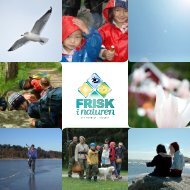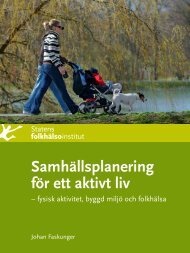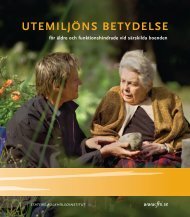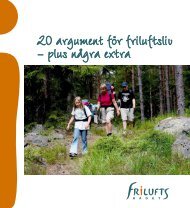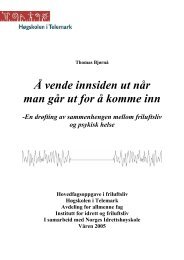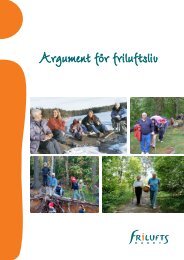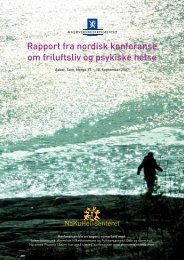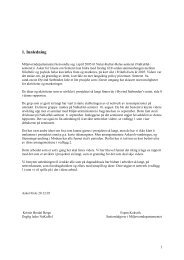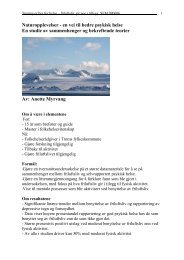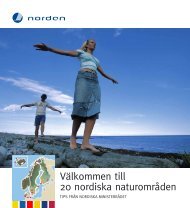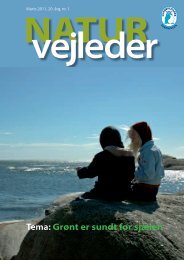Green Care: A Conceptual Framework - Frisk i naturen
Green Care: A Conceptual Framework - Frisk i naturen
Green Care: A Conceptual Framework - Frisk i naturen
You also want an ePaper? Increase the reach of your titles
YUMPU automatically turns print PDFs into web optimized ePapers that Google loves.
health-giving and that people seeking help benefit from being guided<br />
(with the help of the therapist and nature-based exercises) towards such a<br />
relationship.<br />
Since the nineties however, Burns (2009), together with others (Buzzell<br />
and Chalquist, 2009; Fisher 2009) have acknowledged the social context<br />
of ecotherapy. Burns (2009) contends that ecotherapy “fits within the<br />
definition of a “third wave” approach in that it is a therapy that is more<br />
solution-based” (p. 95).<br />
This is also reflected in further research on the applications of ‘ecotherapy’,<br />
both in practice and education (Burls and Caan, 2005; Burls, 2007)<br />
and a description of a contemporary model of ecotherapy for the 21st<br />
century (Burls, 2008) has been developed. Contemporary ecotherapy<br />
can be described as taking the “third wave” therapy model one stage<br />
further as it adopts an ‘ecosystem health’ approach with a broad focus of<br />
transdisciplinarity. This emphasises social attitudes as well as research and<br />
activities which imply an element of reciprocity between human and nature<br />
and promote positive action on the environment that improve community<br />
well-being.<br />
The paradigm of contemporary ecotherapy outlines two levels of<br />
involvement: the micro-level of the therapeutic process and the macro-level<br />
of the wider social processes. This process broadens a view of the self as<br />
part of a ‘larger whole’, which individuals come to appreciate and nurture,<br />
thus engendering reciprocity towards their ecosystem. The powerful effects<br />
of this dimension radiate out from the personal ‘microcosm’ towards the<br />
exterior ‘macrocosm’ of social parameters. Fisher (2009) contends that<br />
people are ‘social animals’, therefore their psychological dimension also<br />
‘dwells in society’.<br />
Ecotherapy brings about the enlightenment that nature not only helps us to<br />
find a personal healthy bio-psychological equilibrium, but that the health<br />
of our ecosystem is an inextricable element of our community and social<br />
system. Ecotherapeutic practice cannot therefore bypass social issues, nor<br />
can it bypass public health, political and policy issues. Ecotherapeutic<br />
spaces and projects can also be used by the community for the benefit of<br />
the public at large and for that of the ecosystem; they also help the public<br />
reconnect with nature and can lead to behavioural and social changes.<br />
Ecotherapeutic spaces are therefore multi-functional spaces. Although<br />
43



